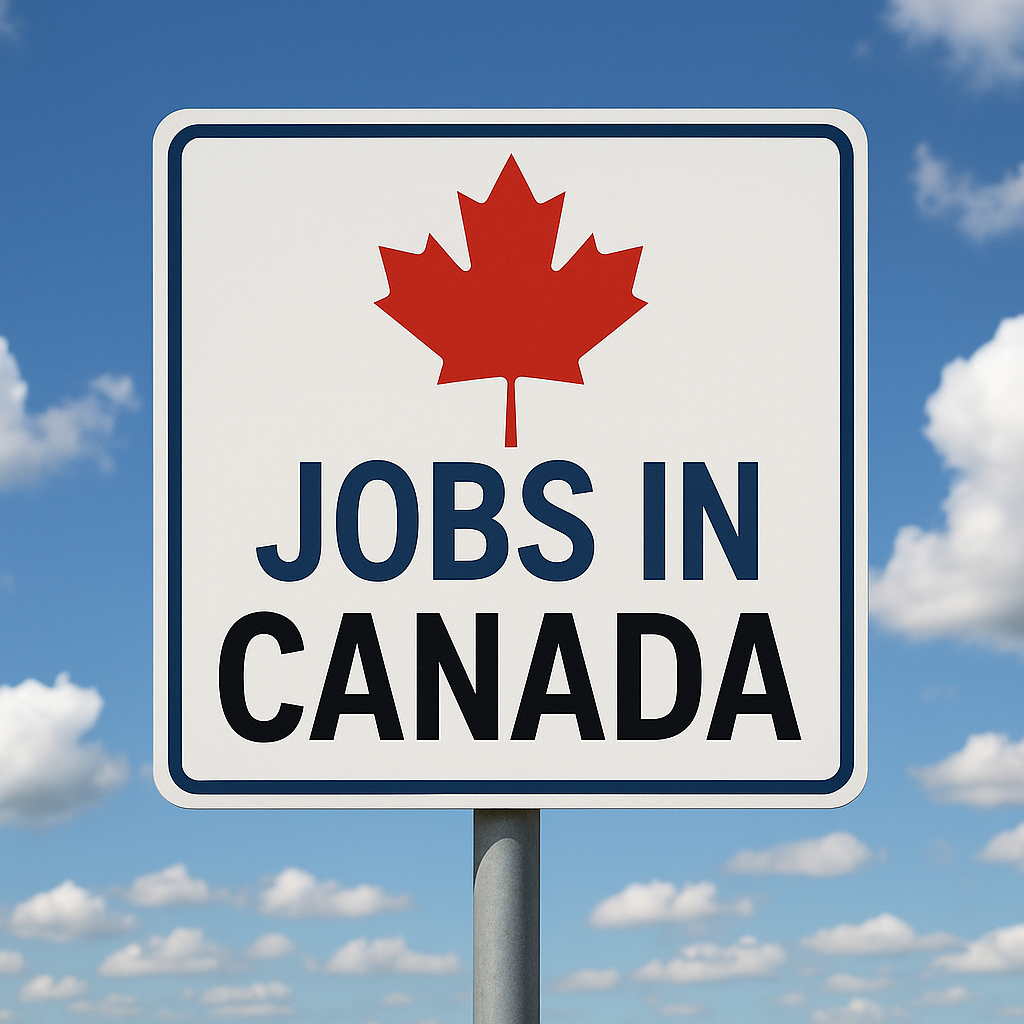The idea of finding work abroad often appeals to professionals seeking better opportunities — and for many Nigerians, Canada is a strong target. With a stable economy, demand for skilled and semi-skilled workers, and immigration routes that allow work-to-permanent-residence transitions, Canada offers a range of possibilities. But success requires preparation, realistic expectations, and adherence to Canadian visa and work regulations.
In this article we’ll cover: the Canadian job market for international candidates; key programmes and permits Nigerians can access; the types of jobs available; the eligibility and application process; and tips for increasing your chances of landing a job in Canada.
Why Canada is an attractive destination for Nigerian job-seekers
- Canada has a labour market that is diversifying, and many provinces are experiencing worker shortages in various sectors — making it more open to hiring foreign nationals. Canada.ca+3VAC – Obtain Visa with ease+3Businessday NG+3
- Canadians enjoy strong worker protections, stable wages and benefits in many jobs — attributes that draw overseas candidates.
- Canada offers pathways for temporary workers to convert their status into permanent residence, which makes it an appealing longer-term option. Canadavisa.com
- Nigeria has a well-educated workforce with good English proficiency — factors that can help in eligibility for Canadian programmes. Canadavisa.com+1
However, it’s not a simple “just go and get a job”. You will still need the right permit, a realistic job offer or pathway, and must meet Canadian requirements.
Key work / immigration pathways for Nigerians
Work Permit / Temporary Work
If you find a job in Canada and your employer is willing to hire a foreign worker, you’ll generally need a work permit. According to Immigration, Refugees and Citizenship Canada (IRCC), you must figure out which type of work permit you need (employer-specific or open) and then apply accordingly. Canada.ca+1
In many cases, the employer must obtain a Labour Market Impact Assessment (LMIA) confirming that there is no Canadian citizen or permanent resident available to fill the job — unless the job is LMIA-exempt. Immigration Advice Service+1
For Nigerians, one page put it plainly: you’ll need a valid passport, job offer, proof of funds, clean criminal record and possibly medical exams. Immigration Advice Service
Skilled Worker / Permanent Residence (PR) – via Express Entry
If you’re a skilled worker and want to immigrate rather than just work temporarily, Canada’s Federal Skilled Worker Program (FSWP) is one of the key routes. It evaluates applicants based on education, work experience, English/French language ability, and other factors. Canada.ca+1
That means if you already have skills and experience, you may aim directly for permanent residence (which includes the right to work) rather than just a temporary job.
Job Opportunities for Foreign Candidates
On the Canadian government’s job board (Job Bank), you can filter to jobs open for international candidates and see what types of roles are available to people outside Canada. Job Bank
Thus, job-seekers from Nigeria can begin searching for roles that state “open to foreign candidates” (or similar wording) and then assess how to match the requirements.
Types of jobs Nigerians can pursue in Canada
Depending on your skill level, experience, language ability and licence/certification status, there are a range of jobs you might target. A Nigerian business news site listed “top 10 jobs in Canada for Nigerians (and others without experience)”, noting positions such as cashier, caregiver, kitchen helper, dishwasher etc. Businessday NG
Here are some categories broken down:
Entry / semi-skilled jobs
- Cashier in retail or supermarkets: Canada requires many retail workers, and cashier jobs often do not require formal Canadian credentials. Businessday NG
- Caregiver / home support worker: Especially in older adult care, there’s demand for people who can assist with daily living. Businessday NG
- Kitchen or food-service helper / dishwasher: These roles often require minimal formal qualifications and can help you get into the Canadian workforce. Businessday NG
- Packaging / Packer roles in manufacturing/distribution: These are physical work roles, often with shift work and are available in various provinces. Businessday NG
While these may not be high-paying compared with skilled professional jobs, they can allow you to enter Canada’s workforce and possibly upgrade your status over time.
Skilled / professional jobs
If you have higher education, certification or professional experience, you might aim for:
- Engineers, IT professionals, healthcare professionals (nurses, technologists) — though many of these roles require licensing in Canada.
- Project managers, business analysts, finance professionals etc.
In these cases you’ll likely need your credentials assessed, language tests, and possibly professional licensing in Canada.
What Nigerian job-seekers must do: eligibility, documents & process
1. Check credential recognition
If your job requires a professional licence in Canada (e.g., nursing, engineering, teaching), you’ll need to check whether your Nigerian credentials are recognised. Job Bank provides a “Foreign Credential Recognition” tool to help with this. Job Bank+1
If your occupation is regulated, you’ll need to obtain the required Canadian licence or certification (which may involve exams, bridging courses, or additional work experience).
2. Language skills
Canada has two official languages: English and French. For many jobs and immigration programmes you’ll need proficiency in at least English (and French if you go to certain provinces or francophone jobs). Job Bank emphasises that improving your English or French helps you get a job. Job Bank
3. Secure a job offer (if applicable)
For employer-specific work permits, you’ll need a formal job offer from a Canadian employer, and the employer may need to get a positive LMIA. Immigration Advice Service+1
The offer must detail job title, start date, salary, location and employer info.
4. Apply for the correct work permit
Once you have a job offer (or you qualify for open permit), you apply via IRCC. You’ll need to follow the steps: gather documents, pay fees, biometrics, etc. Canada.ca+1
5. Prepare to move and work in Canada
Once approved, you’ll arrive in Canada, obtain a Social Insurance Number (SIN), and follow Canadian workplace rules. Job Bank notes that newcomers should apply for SIN and prepare accordingly. Job Bank+1
Tips to improve your chances of success
- Create a Canadian-style resume: Use the Canadian format (clear layout, key skills, achievements). Job Bank provides resources on how to write a good resume. Job Bank
- Target jobs that explicitly accept foreign candidates: Many job boards allow filtering to “open to foreign candidates” — this helps you identify employers already open to hiring internationally. Job Bank+1
- Be realistic about job levels and salary: Entry roles are good stepping stones. If you go for a high-skilled job without Canadian experience or credentials, your chances dip.
- Improve language skills and professional credentials: Take IELTS/TOEFL for English, or French test if needed; also get any additional certifications you can from Nigeria or online.
- Beware of scams: Any “job guarantee” or “pay to get job in Canada” is likely a scam. The LMIA process does not allow employers to charge workers. (A warning note is given in credential recognition resources.) Wikipedia
- Consider regional/job sectors with higher demand: Provinces like Manitoba, Nova Scotia, Prince Edward Island, etc., are noted to have higher demand for certain worker types and maybe less competition. Businessday NG
- Think of long-term strategy: Work in Canada temporarily, then apply for permanent residence via eligible programmes, if your goal is long-term migration.
Common pitfalls & how to avoid them
- Assuming you can just show up and find any job: Without the correct work permit, you can’t legally work in Canada. IRCC clearly states you must obtain the permit first. Canada.ca
- Using unlicensed recruiters or paying for job placement: Paying a recruiter for a job offer or “visa guarantee” is risky and often illegal.
- Not verifying job legitimacy: There are many listing boards for “jobs in Canada for Nigerians” but you must always check employer credibility, permit requirement, and that the job is genuine.
- Underestimating costs and preparation time: Visa processes, credential recognition, moving cost, and settling in take time and money. Plan accordingly.
- Neglecting Canadian workplace culture and labour laws: Canadian employers expect punctuality, good communication, teamwork, and adherence to health/safety rules.
Outlook: What Nigerian applicants can expect
While competition is high for roles that offer sponsorship or relocation, opportunities exist especially in sectors facing labour shortages. As the BusinessDay Nigeria article noted, even roles “without previous experience” such as cashiers, kitchen helpers, caregivers, packaging and similar jobs are in demand. Businessday NG
Skilled workers may aim for the FSWP or other the Express Entry pathways, especially if they have 3-5 years of experience, strong English skills and a degree. Canada.ca+1
For a Nigerian job-seeker today: start by assessing your own skills, language level and budget; identify Canadian provinces/industries that match your profile; prepare your credentials and resume; apply for roles that say “foreign candidates welcome”; and ensure you meet the visa/work-permit requirements. With consistent effort and realistic expectations, you can secure a job and potentially build a career in Canada.
Final thoughts
Working in Canada is a solid ambition for many Nigerians, offering the dual benefit of income and potential migration. But achieving it isn’t accidental — it requires informed action, documentation, preparation and the right match of skills and opportunity. Focus on your strengths, upgrade the areas that matter (language, credentials, resume), aim for roles that match your profile, and ensure you follow Canada’s rules fully.


